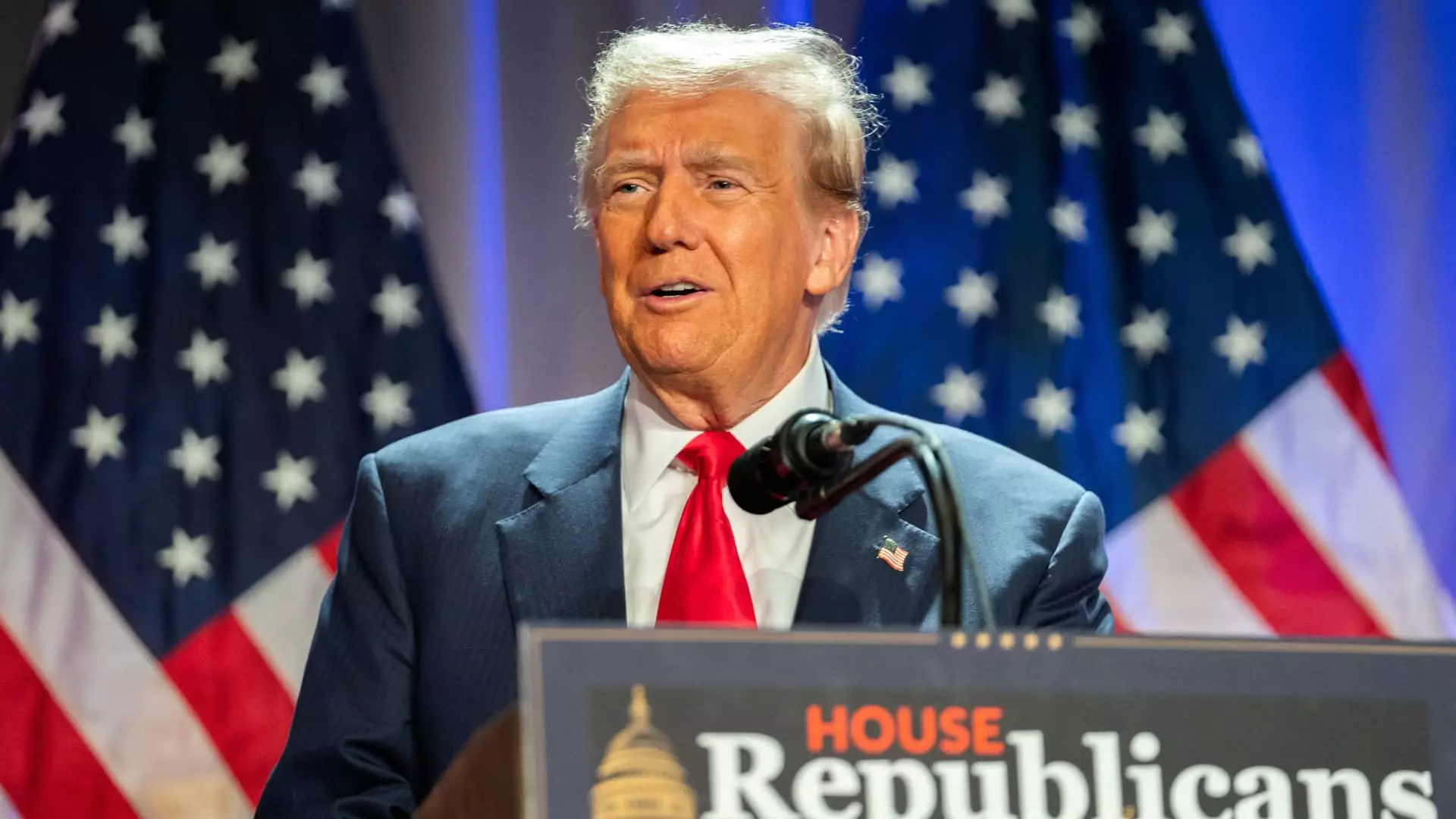As congressional lawmakers gear up for discussions surrounding fading tax breaks and the ambitious plans of President-elect Donald Trump, the path ahead appears strewn with hurdles. The Republican Party, wielding a majority in both the House of Representatives and the Senate, is poised to enact extensive tax reforms using a legislative process known as reconciliation. This method effectively bypasses the traditional Senate filibuster, allowing for a streamlined passage of budgetary measures. However, the intricacies of aligning divergent party factions will likely present a substantial roadblock.
Economic and political analysts, during a recent gathering at the Brookings Institution, underscored the complexities that arise from this newfound power. The anticipated consensus on tax cuts and spending initiatives is overshadowed by the reality of a significant federal budget deficit and the variegated interests represented within the Republican Party. Howard Gleckman, a senior fellow at the Urban-Brookings Tax Policy Center, emphasized that legislators are more likely to advocate for the diverse needs of their constituents rather than adhere strictly to party lines. This sentiment reflects a deeper challenge facing the GOP — reconciling the desires of local districts with overarching party goals.
The legislative conversation will inevitably circle back to the Tax Cuts and Jobs Act (TCJA), which President Trump championed in 2017. A central tenet of the forthcoming administration’s priorities, the TCJA stands to face its own reckoning as key tax provisions risk expiration after 2025. Noteworthy elements like reduced tax brackets, elevated standard deductions, and increased child tax credits could vanish unless Congress takes affirmative action.
In addition to safeguarding existing provisions, President Trump has suggested an array of new tax reforms that could reshape the fiscal landscape. These include eliminating taxes on tips and Social Security benefits for senior citizens, along with the striking prospect of zero income taxes. Such radical proposals not only showcase Trump’s bold approach to tax reform but also threaten to deepen potential divisions within the Republican Party. As Molly Reynolds, a senior fellow at the Brookings Institution, articulated, the introduction of multiple reforms adds layers of complexity to the legislative agenda, making bipartisan agreement increasingly elusive.
The legislative process for tax reform is far from swift. Experts warn that the intricacies involved in budget reconciliation will take considerable time and effort. Congress must act expeditiously to fund the government before the looming deadline of December 20, which threatens a government shutdown if unmet. Should temporary measures require an extension into the new year, the timeline for advancing Trump’s tax priorities could stretch even further.
Many observers are skeptical about the feasibility of enacting significant tax changes within the first 100 days of Trump’s presidency. Gleckman’s assertion that the timeline for a completed tax bill might realistically stretch to the end of 2025 — or even later — echoes the cautious optimism expressed by many in Washington. The complexities of uniting varying factions—each with its own agenda—mean that the path to meaningful reform will likely require patience, negotiation, and compromise.
In summation, the forthcoming debate over tax reform in Congress is set against a backdrop of competing interests and political intricacies. The GOP holds the reins of power, yet the internal rifts present a formidable challenge to achieving a unified front. As Trump introduces ambitious proposals designed to revamp the American tax system, legislative leaders will need to navigate a multifaceted landscape marked by voter expectations, fiscal realities, and party dynamics. The coming months will determine whether the potential for sweeping reforms transforms into actionable policies or remains entangled in partisan divides. The outcome will undoubtedly shape not just the economic landscape but also the political climate leading into subsequent elections.

